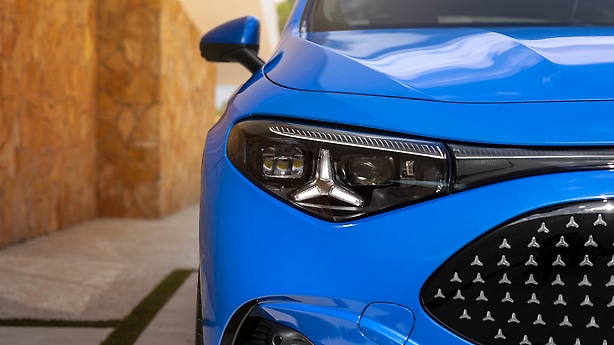Cobalt is an important raw material for the production of batteries for electric cars and commercial vehicles. The world’s largest deposits of this material are found in the Democratic Republic of the Congo. Mercedes-Benz has deliberately decided not to generally exclude countries of origin viewed as high-risk - such as the Democratic Republic of the Congo - as sources of supply. Instead, the holistic approach aims to improve the local situation for the people working there and to strengthen their rights. This is the only way to achieve long-term, and sustainable, social changes.
By doing so, Mercedes-Benz AG is following the recommendation of non-governmental organizations, governments and other relevant interest groups not to generally withdraw from high-risk countries. In accordance with the principle of using empowerment before withdrawal, the aim is to encourage the local economy while at the same time ensuring that higher standards in relation to the protection of human rights are established and then improve over time.
Already in 2018, Mercedes-Benz commissioned RCS Global to create transparency about the complex cobalt supply chains of battery cells and to audit them across all stages according to OECD due diligence guidelines. In the first phase of the project (2019-2022), 236 direct and sub-suppliers were identified and 154 audits were carried out after a corresponding risk assessment was carried out by 30 June 2022.
Mercedes-Benz will in future only source battery cells with cobalt & lithium from audited mining sites. In order to achieve this, Mercedes-Benz Procurement is making the industry-wide recognized "Initiative for Responsible Mining Assurance" (IRMA) a key criterion for supplier decisions and contracts in raw material supply chains. The standard marks the beginning of industry-wide application, which Mercedes-Benz is actively promoting. With the contracts, the partners commit to work exclusively with raw material suppliers in their own supply chain who are audited according to the IRMA mining standard. In addition to cobalt, the application of the IRMA standard also applies to the raw materials lithium, nickel, graphite, manganese and copper. The supply chains will in the future also be regularly monitored.
Important criteria in the IRMA standard include human rights, occupational health and safety and environmental impact of raw material mining. The standard also takes into consideration further social and societal aspects that are related to the consequences of industrial mining.
As things stand at present, there are only two cobalt mines that have been audited according to the IRMA Standard for industrial mining. Mercedes-Benz is therefore working with IRMA and RCS Global on a step-by-step approach that allows a limited number of cobalt mines in the Democratic Republic of Congo to be audited according to specific requirements.
In the medium term, this approach aims on the one hand to establish realistic expectations of mining suppliers, while on the other pressing for increasingly responsible practices in order to meet Mercedes-Benz’s requirements for sustainable supply chains. The long-term objective is a clear commitment to a process of continuous improvement. Included in this are transitional periods for the achievement of different levels of performance for an IRMA certification.
,xPosition=0,yPosition=0.5)
,xPosition=0.5,yPosition=0)
,xPosition=0.5,yPosition=0)
,xPosition=0.5,yPosition=0)
,xPosition=0.5,yPosition=0)
,xPosition=0.5,yPosition=0)
,xPosition=0.5,yPosition=0)
,xPosition=0.5,yPosition=0)